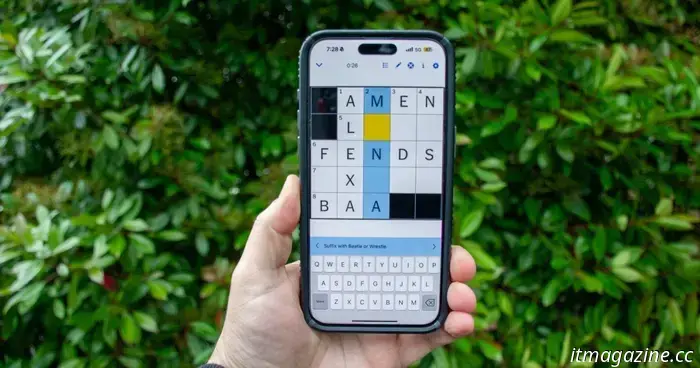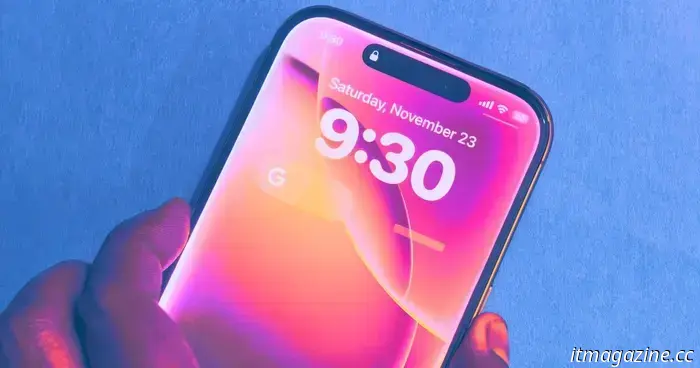.jpg)
Goodbye Skype, we barely utilized you lately.
I still recall transitioning to Skype for my in-game communication in the mid-00s. This choice was partly due to the fact that I was typically playing with just one or two friends, and I also used it to call my girlfriend. It helped me move on from MSN Messenger, where I initially connected with her, and I remember it being a groundbreaking experience in terms of call clarity. The voice on the other end was significantly clearer compared to other VOIP software I had tried.
Eventually, I switched to Teamspeak for larger group gaming sessions and later adopted Discord when it gained popularity in the 2010s. However, I continued to use Skype for personal calls with relatives, and until very recently, it was my mode of communication with my therapist.
So, it’s a bittersweet moment as I reflect on my last Skype call after 20 years of intermittent use, as Microsoft is shutting Skype down this week and most of its millions of users have transitioned to other platforms.
It's time to bid farewell.
Getting Started
Skype began as a small initiative by a group of developers from the Nordic and Baltic regions who stumbled upon the brilliant idea of utilizing peer-to-peer technology (similar to what was used in their previous project, Kazaa) to lower the costs of voice calls. Just over two years after its launch in 2003, eBay acquired the parent company for $2.5 billion.
If you wish to hear the iconic Skype sounds, you can still call Echo as of this writing.
The introduction of affordable, and eventually free, voice calls was revolutionary at the time, allowing for clear and effective voice communication when landline and mobile phone costs were prohibitively high, especially for those of us who were too young to be earning a significant income.
However, while eBay made an impressive return on its investment by selling to Microsoft in 2011 for a staggering $8.5 billion, Skype still had considerable growth ahead before it started to decline.
Capturing Market Share
By the time Microsoft decided to invest in Skype, the VOIP service boasted over 600 million registered users globally, with around 300 million active users each month. I can attest that my two brothers, both my parents, and a large number of our extended friends and family were all using it. Skype was nearly synonymous with VOIP calling, to the point where we'd say, "Yeah, I'll Skype them later."
But this was just the beginning of Skype's international expansion. With Microsoft promoting its use on Xbox and Windows as a leading communication tool, it surged to nearly 100 million monthly users in the mid-2010s, capturing a remarkable 40% of the international call market by 2014.
Recently, I’ve been more inclined to associate Skype with random additions to crypto scam groups.
While it began to face increased competition from newer, cloud-based services like Zoom, Google Meet, and Microsoft’s own Teams, Skype even experienced a resurgence during the pandemic. In March 2020, as lockdowns were implemented worldwide, Skype saw a 70% increase in daily users compared to the previous month.
However, as the pandemic persisted and the VOIP market settled down, Skype found itself increasingly marginalized, and daily user numbers continued to dwindle in the years that followed. By 2023, daily users had dropped to 36 million, while Microsoft’s Teams surpassed 300 million active users in a similar timeframe.
This ultimately led Microsoft to announce at the start of 2025 that Skype would be permanently shut down on May 5.
Phasing Out an Icon
Though it seems that the development of Microsoft Teams signaled Skype's decline, it’s possible that was not the original intention. Even in 2023, Microsoft integrated the Bing AI chatbot into Skype. While this may have been an attempt to boost user engagement with its new AI initiatives, it’s possible Microsoft believed Skype could still carve out its own niche.
But today, that niche has become part of a broader collection of apps and services that major corporations have absorbed and then sidelined. Both Microsoft and Google maintain extensive Wiki pages dedicated to it.
Using Skype now often comes with overt nudges encouraging users to switch to Microsoft’s other communication app.
Although not entirely predictable, it's easy to understand how Skype would struggle to compete in today’s app and service landscape. WhatsApp and Telegram offer quick, convenient voice and video calls centered around smartphones. Discord excels at larger group calls, while Zoom, Teams, and similar platforms dominate the professional arena.
Skype simply isn’t as relevant anymore. This makes me a bit wistful, as I shared many foundational online gaming moments on it. I first spoke to my then-girlfriend, now-wife, on Skype, and I had video calls with my now-deceased grandparent during the pandemic.
But now, it’s time to say goodbye. Perhaps I’ll make one last call to Echo for old times' sake.
.jpg)
.jpg)
.jpg)
Other articles
 NYT Mini Crossword for today: answers to the puzzle for Friday, May 2.
The NYT Mini crossword may be significantly smaller than a standard crossword, but it's still quite challenging. If you're having trouble with today's puzzle, we have the solutions for you.
NYT Mini Crossword for today: answers to the puzzle for Friday, May 2.
The NYT Mini crossword may be significantly smaller than a standard crossword, but it's still quite challenging. If you're having trouble with today's puzzle, we have the solutions for you.
 Yuji Horii, the creator of Chrono Trigger, may have just suggested the possibility of a remake.
During an interview at Comicon Naples, Horii inadvertently mentioned that there could be something related to Chrono Trigger in the works.
Yuji Horii, the creator of Chrono Trigger, may have just suggested the possibility of a remake.
During an interview at Comicon Naples, Horii inadvertently mentioned that there could be something related to Chrono Trigger in the works.
 The top 20 Nintendo Switch exclusives of all time
As the Switch 2 approaches, it's time to discuss the fundamental question: Which are the greatest Nintendo Switch games ever?
The top 20 Nintendo Switch exclusives of all time
As the Switch 2 approaches, it's time to discuss the fundamental question: Which are the greatest Nintendo Switch games ever?
 Speed reunion: Keanu Reeves and Sandra Bullock join forces for a new thriller.
It's a reunion from Speed, with Keanu Reeves and Sandra Bullock joining forces for a romantic thriller at Amazon MGM Studios.
Speed reunion: Keanu Reeves and Sandra Bullock join forces for a new thriller.
It's a reunion from Speed, with Keanu Reeves and Sandra Bullock joining forces for a romantic thriller at Amazon MGM Studios.
 Rust has recently introduced a groundbreaking update to its map for the first time in several years.
Welcome to the jungle, a place filled with new foes, fresh weapons, and even more chaos for players to encounter.
Rust has recently introduced a groundbreaking update to its map for the first time in several years.
Welcome to the jungle, a place filled with new foes, fresh weapons, and even more chaos for players to encounter.
 Apple acknowledges that the development of Siri’s AI capabilities is “taking a bit longer” than anticipated.
Tim Cook confirmed to analysts that the features were being developed, but were not yet prepared for launch.
Apple acknowledges that the development of Siri’s AI capabilities is “taking a bit longer” than anticipated.
Tim Cook confirmed to analysts that the features were being developed, but were not yet prepared for launch.
Goodbye Skype, we barely utilized you lately.
I still recall transitioning to Skype for my in-game communication in the mid-2000s. One reason for this was that I was typically gaming with just one or two friends, and I also used it to call my girlfriend. It allowed me to move on from MSN Messenger, where I had initially met her. [...]
